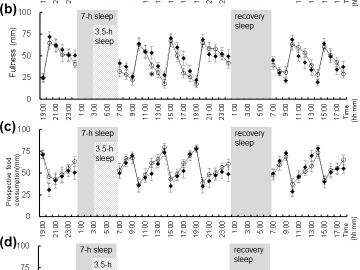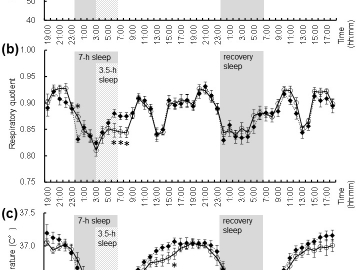Lacking sleep could lead to obesity
Wed, Jan 11, 2017-
Tags
According to a study by researchers from Waseda University and Kao Corporation, greater calorie intake during a shortened sleep cycle could increase the chances of being diagnosed with obesity.
A growing global issue, obesity is a risk factor for serious illness, such as cardiovascular disease, hyperlipidaemia, hypertension and type 2 diabetes. This abnormal accumulation of fat is caused by physical inactivity and overeating. In other words, there are severe consequences when daily energy intake excessively surpasses energy expenditure, causing an energy imbalance. Furthermore, sleep deprivation has been linked with obesity, yet how it affects daily energy balance has not yet been fully understood.
 Professor Suano Uchida from the Faculty of Sport Sciences and the team studied how shortened sleep could affect energy metabolism, core body temperature and appetite by evaluating nine healthy young men with normal body weight. In the randomized crossover study, the subjects underwent two conditions: a 3.5 hour-sleep duration and a 7 hour-sleep duration for three consecutive nights, followed by one 7 hour-recovery sleep night. The subjects’ energy expenditure and core body temperature were continually measured for 48 hours using a whole-room calorimeter, and they completed an appetite questionnaire every hour.
Professor Suano Uchida from the Faculty of Sport Sciences and the team studied how shortened sleep could affect energy metabolism, core body temperature and appetite by evaluating nine healthy young men with normal body weight. In the randomized crossover study, the subjects underwent two conditions: a 3.5 hour-sleep duration and a 7 hour-sleep duration for three consecutive nights, followed by one 7 hour-recovery sleep night. The subjects’ energy expenditure and core body temperature were continually measured for 48 hours using a whole-room calorimeter, and they completed an appetite questionnaire every hour.
The researchers discovered that lacking sleep did not affect total energy expenditure, but the mean of the 48-hour core body temperature decreased noticeably in the 3.5 hour-sleep condition compared with the 7 hour-sleep, while hunger and perspective food consumption significantly increased.
- Hourly energy expenditure (EE) (a) (n = 9), respiratory quotient (RQ) (b) (n = 9), and core body temperature (CBT) (c) (n = 7) during 48 h in the whole-room indirect calorimeter
- Mean appetite ratings of hunger (a), fullness (b), prospective food consumption (c), and satiety (d) in 3.5-h and 7-h sleep conditions after 48 h in the whole-room indirect calorimeter
These findings suggest that shortened sleep increases appetite but does not affect energy expenditure, and that the quantity of sleep time lead to changes in energy balance and circadian rhythms (or commonly known as the body clock), potentially increasing the risk of obesity.
The team intends to further investigate the relationships between food consumption, sleep time, and physical activities. This study appeared in Scientific Reports, Nature Publishing Group’s online journal on January 10, 2017.
















